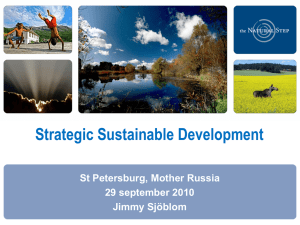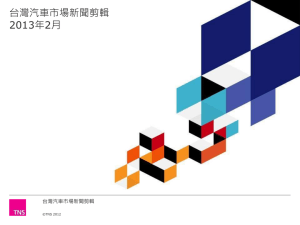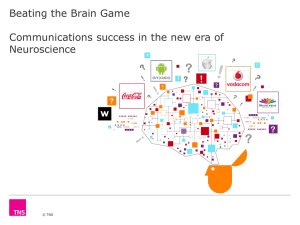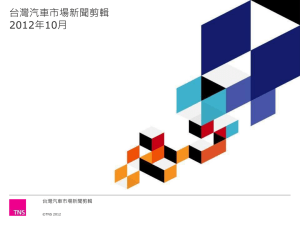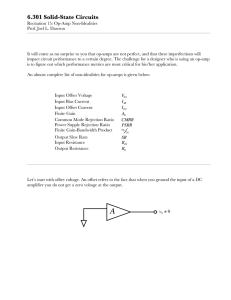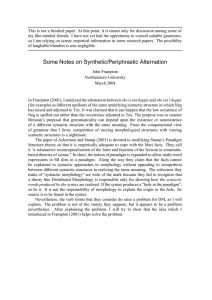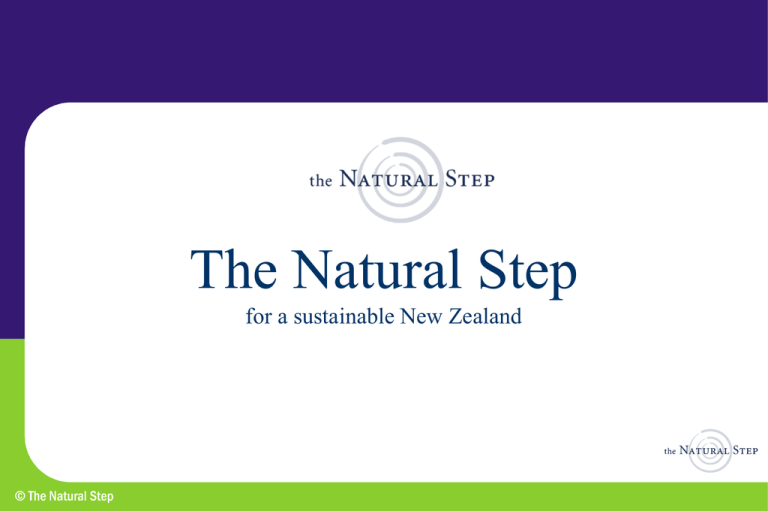
The Natural Step
for a sustainable New Zealand
Where is TNS from?
• Origin in Sweden as educational programme for
schools, households and business - started by cancer
scientist Karl-Henrik Robert. (Story told in his book
due 2002 from New Society publishers, USA)
• Taken up in UK, USA, Australia, Canada, Japan, NZ
and other countries during 1990s, where TNS valued
as sustainability education within business, often
alongside tools such as Environmental Management
Systems (e.g. ISO 14001), or ‘Triple Bottom Line’
company annual reporting.
WHAT IS TNS?
THE NATURAL STEP
SUSTAINABILITY:
Environmental
Social
Economic
COMPASS &
Guiding
PHILOSOPHY
Intern
ational
Based on sound science
& & systems thinking
“Yes, and ..
Consensus &
partnerships
Profit, +
doing good
SUSTAINABILITY
Society
Economy
Ecology
The problem of system capacity
E.g. world supply of fertile arable land
Ecosystem
Capacity falling
Natural
Resource
Margin
for action
is reducing
Human Demand rising
Agricultural land needed
Time
Now
In the Funnel (as options reduce)
Capacity
Business
Planning
Options
Demand
Decreasing: resource availability
waste assimilative capacity
restorative capacity
sustainable
business
Increasing:
population
global demand
market
competitiveness
regulation by
government
System Overview
Details
= leaves
Fundamental Principles
= trunk and branches
© 2000 The Natural Step. All rights reserved.
Basic Science
• matter & energy cannot be created or
destroyed (nothing disappears)
• matter & energy tend to spread
spontaneously (everything spreads)
• material quality is in the concentration
& structure of matter
• material quality on earth is netproduced only by sun-driven processes
Natural Cycles
© 2000 The Natural Step. All rights reserved.
Nature’s economy is cyclical
• Waste from one organism is resource for another
– Oxygen is waste from plants’ capture of carbon
– Carbon dioxide is waste from animals’ respiration
– Plants and animals become food for other animals and
for bacteria and fungi, which recycle minerals, etc.
• No accumulation of waste in nature, only cycles
Inefficiency of resource use
Resource
Product
4.8% waste
within 6 weeks
94%
94% waste before
product sold
Source: Robert Ayres, Industrial Metabolism
1.2%
System Condition 1
In the sustainable society,
nature is not subject to systematically
increasing……
…concentrations of substances
extracted from the Earth’s crust;
This means substituting certain
minerals that are scarce in nature with
others that are more abundant, using
all mined materials efficiently, and
systematically reducing dependence on
fossil fuels.
System Condition 2
In sustainable society, nature is not
subject to systematically increasing ….
…..concentrations of substances
produced by society;
System Condition 3
In the sustainable society, nature is not
subject to systematically increasing….
…degradation by physical means;
This means drawing resources only from
well-managed eco-systems, systematically
pursuing the most productive and efficient
use both of those resources and land, and
exercising caution in all kinds of
modification of nature.
System Condition 4
In the sustainable society….
...human needs are met world wide.
This means that in a sustainable society,
basic human needs must be met with the
most resource-efficient methods possible,
including a just resource distribution.
Apply to Business Strategy
The company asks:
1. How can we reduce our dependence on mining and
fossil fuels?
2. How can we reduce our dependence on releasing
persistent, unnatural substances?
3. How can we reduce our dependence on land and
nature-consuming activities?
4. How can we do more with less, so resources can be
spread equitably? How to achieve fairness?
We use ‘backcasting’ not forecasting
start at Step 1
Describe the
desired future
(vision)
then Step 2
Develop a programme
for change to take you
to that desired future, in steps
Overseas users of TNS
• Paul Hawken, author of ‘Natural Capitalism’ and
‘Ecology of Commerce’ (he advised Pres.Clinton).
• Interface (floor-coverings), Home Depot (US retailer),
Electrolux (appliances), McDonalds Sweden; Carillion
and Tarmac (UK construction co’s), Environmental
Protection Agencies (Aus and UK), Toyota cars Aus.,
National Panasonic (Japan), City and Resort of Whistler
(Canada), City of Seattle, and dozens more.
The Natural Step in NZ
• Team of accredited,
consultants/advisors,
others in training.
• NZ companies already
using TNS Framework©
include 9 ‘Pathfinder’
larger firms, Christchurch
City Council and 6 small
businesses (CCC assisted)
• National Coordinators
based at Lincoln:
Rhys Taylor, Maria
Fairburn. Ph.03 325 6711
natstep@naturalstep.org.nz
• http://www.tns.org.nz
Website will include case
studies later in 2002
The Natural Step
for a sustainable Open Polytechnic of New Zealand
History
•
•
•
•
•
‘ERTI’
The Natural Resources Center
Environmental Courses
Initial Environmental Review
Environmental Policy
Our Process of adopting TNS
Why did we do it?
– Good business sense
– The ‘right time’?
» Internal and external (Pathfinder Programme)
– Organisational Champions
How did we do it?
Project approach
»
»
»
»
From idea
to strategic plan
to business plan
to implementation
Current Status
Initial TNS Training
TNS Consultant involvement
Cross-Functional Project Group
Active Communication
Environmental Policy based on 4SC’s
Objectives for 2002 in Business Plan
Plan to proceed with implementation
Extract from our
revised Environmental Policy
System Condition 1: Reduce our use of materials that come from
mining and fossil fuels, especially materials that are naturally
scarce in the Earth's crust.
System Condition 2: Reduce our use of synthetic substances that
are toxic and/or don't biodegrade.
System Condition 3: Promote environmental restoration and
reduce use of materials from nature that are harvested
unsustainably or used in ways that reduce natural productivity
and biodiversity.
System Condition 4: Increase environmental awareness and use
resources efficiently and fairly so that all basic human needs can
be met.
The Future
• ‘Bringing our own house in order’
– Continuing the culture change
– Checking more of our operations against the 4SC’s
– Reporting on our financial, environmental and social
performance
– Gaining ISO 14001
• Adopting an Environmental Conscience
– Leading the Way
– Educating for Sustainability
• Communication
– http://topic/TNS/TNS.cfm

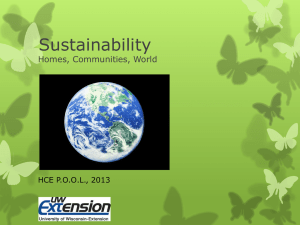
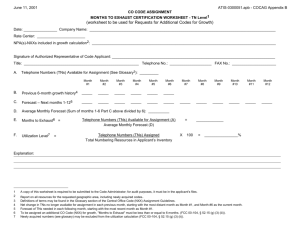
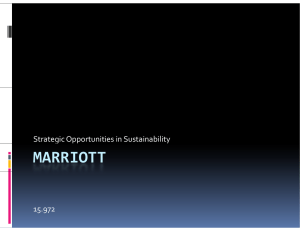
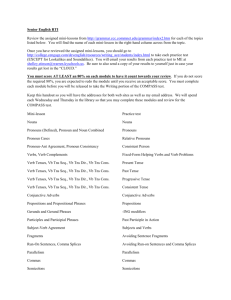
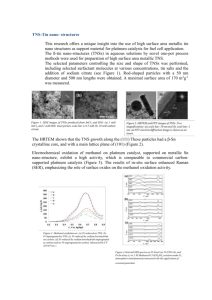
![(TNS Foundation)[1]](http://s3.studylib.net/store/data/007346973_1-c15d24f994805b770e00d79c8993f9db-300x300.png)
